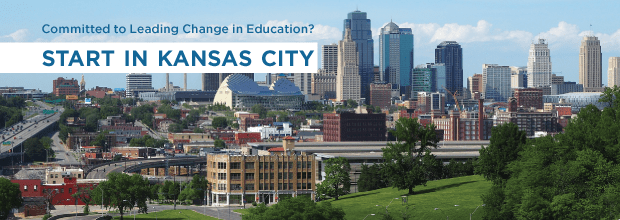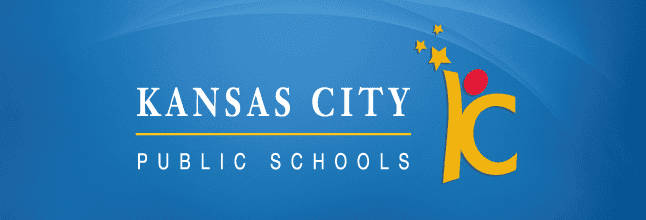
As passionate and capable education change agents, we face a tough decision: where should we work?
Should you go where you’re most familiar or comfortable? Or should you go to the place that needs you?
For those of us who want to make change in education, we should push ourselves to those places that need us most. Coincidentally, these are also the places which are likely to welcome our contributions the most.
In 2016, I took a leap of faith to work in a place that was calling me: Kansas City, MO. There, as an Education Pioneers Fellow, I worked with the Kansas City Public School District, which serves over 14,000 students in 35 schools.
Kansas City, with about a half a million residents, is a large and racially diverse city (about 30% Black/African American and 10% Hispanic/Latino).
 Of the city’s 30,000+ school-going kids, nearly half (47%) attend Kansas City Public Schools, just over a third (34%) attend charter schools, and about a fifth (19%) attend private or parochial schools. What’s interesting is that there are 15 school districts which serve Kansas City, the result of how school or district boundaries were set up following desegregation.
Of the city’s 30,000+ school-going kids, nearly half (47%) attend Kansas City Public Schools, just over a third (34%) attend charter schools, and about a fifth (19%) attend private or parochial schools. What’s interesting is that there are 15 school districts which serve Kansas City, the result of how school or district boundaries were set up following desegregation.
Similar to the city’s demographics, the student population is also racially diverse (57% Black/African American, 28% Hispanic/Latino, 9% White, and 6% other racial/ethnic identities). Almost all Kansas City Public School students (90%) are eligible for free or reduced-price lunch, and with a federal provision, 100% of students receive free meals.
(For additional information on KC schools, Show Me KC Schools is a good online resource managed by parents.)
Some of the challenges which Kansas City schools face—and which are typical of any urban school district—include comparatively low test scores leading to frequent loss of accreditation, declining enrollment in public schools, and funding and talent deficits.
The approaches to address these challenges include ensuring that:
- Teachers are well trained and supported to teach low-income, minority students;
- Parents and community are engaged more and more;
- District and school administration become more effective and efficient in improving students’ learning; and
- Parents motivate and support students after school hours.
Kansas City has already started many initiatives to address these challenges. For instance:
- The Kansas City Teacher Residency Model is an effort to improve the supply of skilled and passionate teachers required to teach low income minority kids.
- A study conducted by Public Agenda found that the majority of parents in the Kansas City are ready, willing and able to be more engaged in their children’s education at some level.
- Kansas City Consensus brought out a special report on how to strengthen local school boards and improve students learning.
- A number of initiatives have been in place to provide support to children before or after the school day. Big Brothers Big Sisters provides children facing adversity one-to-one life-changing friendships with adult mentors. Additionally, Kansas City Public Schools now provides a seven-hour school day of high-quality Pre-K education at no cost for 1,100 Kansas City children with a provision for extended pre- or post-school hours, to improve student learning in later school years and also allow parents to work to increase their income.
To address the challenges Kansas City schools face and to augment the efforts taken to address those challenges, passionate and competent education change agents are required in Kansas City.
Looking at the attendance and enthusiasm during the first ever Summer Fest organized by Kansas City Public Schools, a lot is happening in education in Kansas City. I’ve found it a great place to work and also have fun, with great places to visit and eat. Come to Kansas City—it’s calling you!
Tanoj Meshram is a 2016 Education Pioneer Alumnus. As a Fellow with Kansas City Public Schools, he digitized the district’s human resources system. Currently a social policy doctoral student at the Heller School for Social Policy and Management at Brandeis University in Waltham, MA, Tanoj also has 18 years’ experience and industry expertise in public policy, government, public sector organizations, nonprofits and K-12 education. He is a former civil servant in the government of India and is committed to social justice and social change.
By Tanoj Meshram , February 9, 2017
